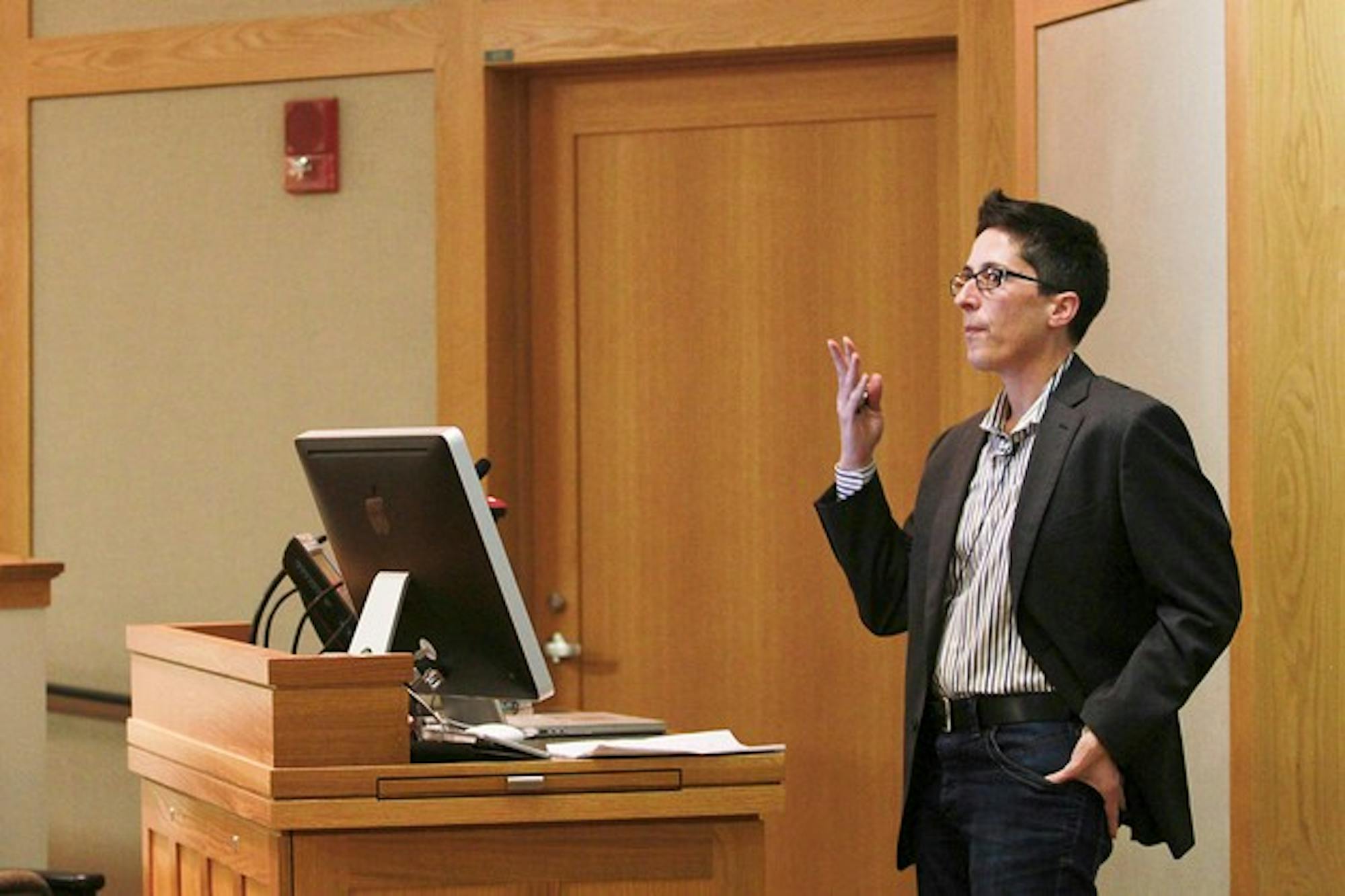Community serves as a major theme in Bechdel's work, she said. Bechdel is the author of the comic strip, "Dykes to Watch Out For," which follows a small group of lesbian friends. Her graphic memoir, "Fun Home: A Family Tragicomic," documents Bechdel's relationship with her closeted gay father during her youth in rural Pennsylvania.
It was community newspapers run by collectives who were the first publications to print "Dykes to Watch Out For" in 1983.
"I would say that community is a consuming passion of mine, and that my cartoons were not just about community, but were really part of a community in a very organic way," Bechdel said in the lecture.
While presenting her comic strips, however, Bechdel discussed her struggle to unite her own gay identity and her work.
"As inspiring as community was for my creativity, it was also constraining," she said. "I find that I am one of those people who says, I am a lesbian and a cartoonist, but not a lesbian cartoonist.'"
She illustrated her point with a graph featuring two lines, one representing her creativity and the other representing her sense of community. Intersecting at the year 2000, the creativity line spiked upward while the sense-of-community line declined.
Bechdel explained her deteriorating identification with the term "lesbian" as a result of the assimilation of gay people into conventional culture.
"Admittance into the mainstream for a minority group always involves a trade-off of some authentic aspect of identity," she said. "When I was a young lesbian, the thought of marrying another woman was inconceivable like Skype is inconceivable. I started realizing pretty early on that if this movement achieved its goals, we would be making ourselves obsolete. There would be no gay bars we would be normal people."
Bechdel said the goal of her work is to expose individual communities to a different perspective.
"What I'm hoping is that I'm expanding the community that I'm speaking to and with," she said.
Bechdel also revealed that she is in the midst of writing a new graphic memoir.
"I figured I did my dad, now I'll do my mom," she said. "It's a very difficult project It's about my mother, but I'm also trying to explore the nature of reality."
Bechdel credited Michael Bronski, a professor in the women and gender studies program, for suggesting the idea of juxtaposing creativity and community in her speech.
"I very much wanted to talk about this idea Michael came up with about community and creativity," she said. "The cultural change in the gay community is something I've wanted to talk about for a long time."
She cited the fact that her first lecture at Dartmouth seven years ago was attended by a more homogenous audience than Tuesday's crowd as proof that she has succeeded.
Bronski agreed, telling The Dartmouth that the lecture "went really well."
"I think it was sort of amazing that seven years ago, the audience was so limited," he said. "And now both this lecture and her book [Fun Home] are so popular."
The Stonewall Lecture series is held annually to spotlight gay, lesbian and bisexual studies at Dartmouth in memory of the 1969 Stonewall Riots, commonly regarded as the first instance when the gay community fought back against political persecution.
When asked what central message she would like students to take away from her speech, Bechdel simply said, "Life is complicated."
Bechdel drew the comic strip "Dykes to Watch Out For" from 1983 to 2008. "Fun Home: A Family Tragicomic" was named one of Time magazine's 10 best books of 2006 and was a National Book Critics Circle Award finalist.




